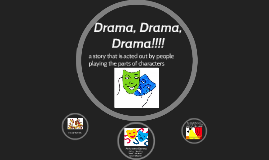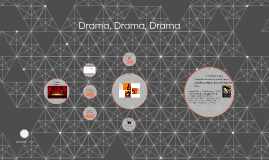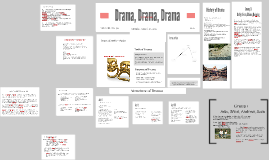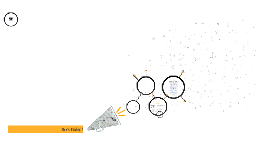Drama? Drama.
Transcript: Staging of drama changed with the designs, formats, scripts, acting, and most of the clothing changed in different aged times. plot- the sequence of events in a story, person against person, person against nature, a protagonist and an antagonist character-the author giving you a direct presentation of who the characters are, indirect presentation where the author gives you clues about the characters, the author giving you the character types by the characters traits theme- the central insight to the story point of view- it could be omniscient where the author tells you the story in third person, it could be limited omniscient where the author associates with a major or minor character, it could be told in first person where something big happens to the main character, another is objective or dramatic where its in the present and displays authorial objectivity symbol- something that means more than what it is irony- a term with a range of meanings, all of them involving some sort of discrepancy or incongruity. It should not be confused with sarcasm which is simply language designed to cause pain TV shows are one type of drama that is popular now but Broadway is another type of popular drama. The Lion King, Wicked, Aladdin, The Phantom of the Opera, and Matilda are currently popular Broadway shows. Elements of Drama History Drama #2 People go many places to see drama such as Broadway and movie theaters. The different types of staging are Greek Classicism, Middle Ages, Renaissance England, Restoration Period, and modern times. "Broadway Musicals." Broadway Tickets. N.p., n.d. Web. 09 Feb. 2015. IMDb. IMDb.com, n.d. Web. 09 Feb. 2015. Stage Directions. Digital image. About Education. N.p., n.d. Web. 9 Feb. 2015. "Drama Types of Stages." Drama Types of Stages. N.p., n.d. Web. 09 Feb. 2015. "PAL: Appendix H - Elements of Drama - A Brief Introduction." PAL: Appendix H - Elements of Drama - A Brief Introduction. N.p., n.d. Web. 08 Feb. 2015. Stage Directions Where was it most popular? Drama was most popular in the middle ages and in Greece, and Rome. What did Shakespeare contribute to drama? Shakespeare was a creator of the English language and had a influential words to express. Some popular drama shows are The Walking Dead, American Horror Story, Pretty Little Liars, and Castle. ~ Janelle Bier - Elements of Drama, Staging ~ Carly White - Drama in Pop Culture, Staging ~ Kailee Shotto - History of Drama, Staging History of Drama Bibliography Elements of Drama #3 Drama? Drama. melodrama- arouses pity and fear through cruder means. Good and evil are clearly depicted in white and black motifs farce- aimed at arousing explosive laughter using crude means. Conflicts are violent, practical jokes are common, and the wit is coarse. Psychologically farce may boost the reader's spirit and purge hostility and aggression Where did drama begin? Drama began through the Greeks and they embraced theater and drama action. What did it look like? Chorus Greek men sang during the drama scenes. Creators: Seeing Drama What are different types of staging? There are many stage directions that people have to learn where to go while on the stage. Right, right center, up center, center, down center, left center, and left are the stage directions that anybody who does stuff on stage must learn. Elements of Drama #2 How was the staging of drama changed through time? Drama Popular Now Popular Drama Shows irony- a term with a range of meanings, all of them involving some sort of discrepancy or incongruity. It should not be confused with sarcasm which is simply language designed to cause pain tragedy- A tragedy is the imitation in dramatic form of an action that is serious and complete, with incidents arousing pity and fear wherewith it effects a catharsis of such emotions comedy- Laughter expresses recognition of some absurdity in human behavior; smile expresses pleasure in one's company or good fortune. The essential difference between tragedy and comedy is in the depiction of human nature: tragedy shows greatness in human nature and human freedom whereas comedy shows human weakness and human limitation. The norms of comedy are primarily social; the protagonist is always in a group or emphasizes commonness

















